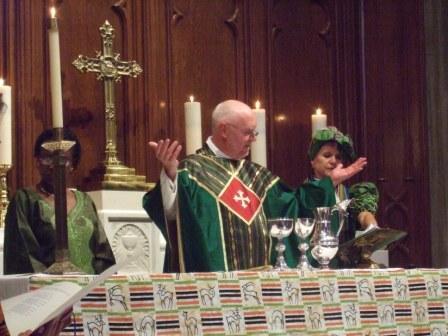 |
| Danza! Danza! Danza! |
 |
| Hip young priest celebrates Mass in Kinte Cloth reflecting his heritage...emm...broadmindedness. |
I'm more confident in the silliness now after reading this article Sunday.
 |
| Professor Haley's book |
The love of all things diverse is obvious. Just look at the excitement "anglos" have over the Guadalupe Fiestas of last week. That's not about our faith. It's about being entertained culturally. Or feeling very cosmopolitan but not having to travel. Haley says this in the article that has some good value to the way we think of our Liturgies and Mass:
"I would argue that in the 19th century American culture is shaped by upper class elite taste, whereas in the 20th century the middle class has come to define how we eat, the music we listen to, the way we dress," Haley said.It's also changed the food landscape of places like our very own Hattiesburg. Ever wonder why you have your pick of Thai, Middle Eastern, Japanese, Chinese and Italian restaurants in the heart of a Southern city?"
Haley goes on to say that the restaurants don't exist for the cultures that produced the food but for the middle class, largely white people, who desire the exotic tastes. Sound familiar?
The book is called "Turning the Tables". Interesting title in context. Maybe our tables need to be turned..back and our culture as Catholics be put in the class we deserve.
